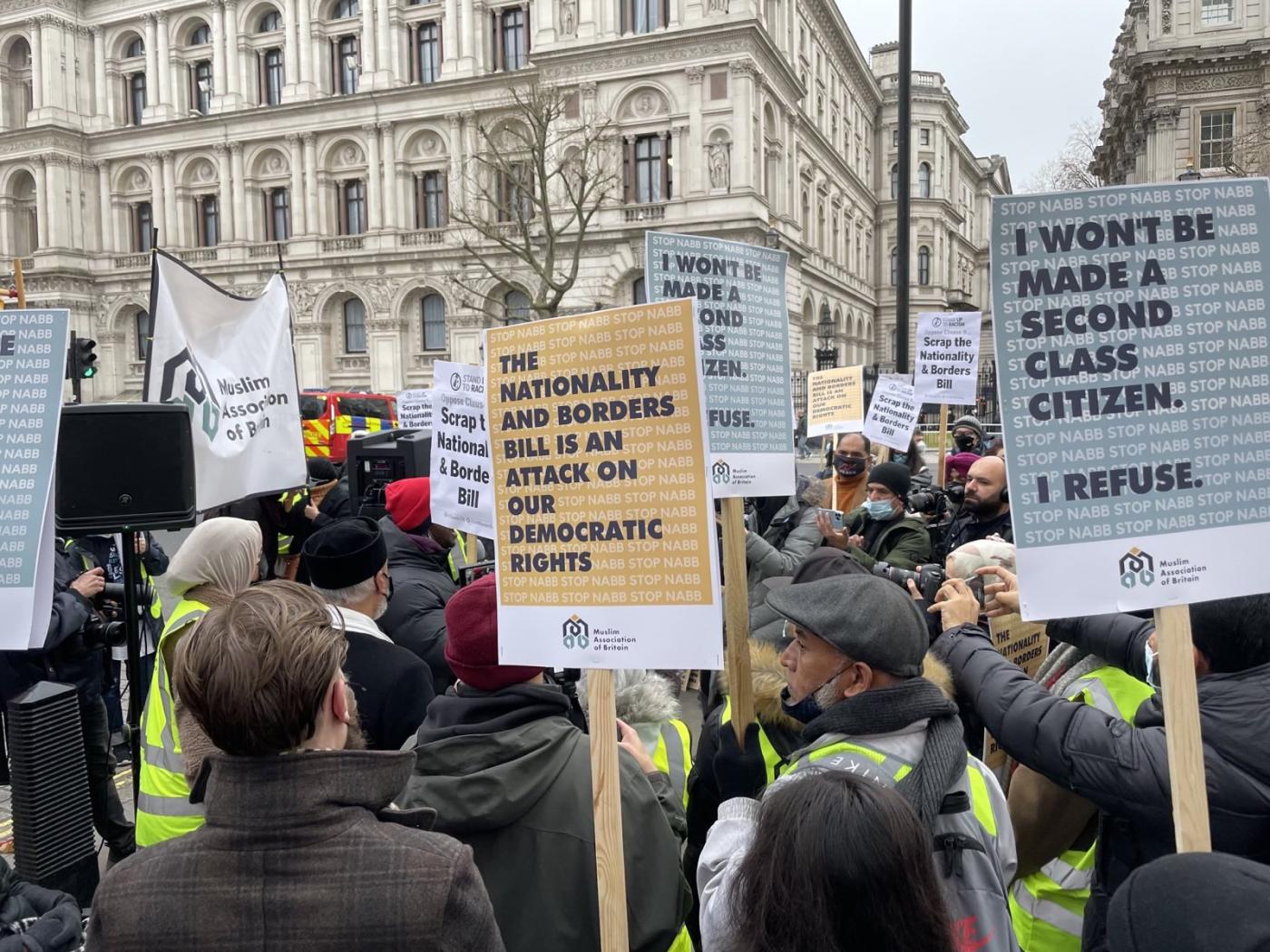Have Muslims in Britain Become Second-Class Citizens?

A research center in the United Kingdom indicated that British Muslims have become second-class citizens as a result of recently extended powers that have given the authorities the ability to strip British Muslims of their citizenship.
According to the Institute of Race Relations (IRR), these laws will target Muslims, in particular, especially those from South Asia, which would boost racial discrimination and create a kind of disparity between citizens.
Under the new Nationality and Borders Law, citizenship can be withdrawn without prior notice.
Muslims to 'Second-Class'?
The Institute of Race Relations (IRR) published, on Sunday, a report drawing a miserable portrait of anti-Muslim discrimination in Britain today, saying, "British Muslims have been reduced to 'second-class' citizens in the United Kingdom after extended powers to strip people of their nationality."
IRR said the targets of such powers "are almost exclusively Muslims," mostly of south Asia, increasing discrimination and creating a lesser form of citizenship.
The IRR's report was published amidst renewed controversy over the case of Shamima Begum, who was smuggled into Syria for the Islamic State by a Canadian spy, and in the wake of the Nationality and Borders Act allowing citizenship to be taken from anybody without notice in some circumstances.

Frances Webber, IRR vice-chair and report author, wrote: "The message sent by the legislation on deprivation of citizenship since 2002 and its implementation largely against British Muslims of south Asian heritage is that, despite their passports, these people are not and can never be 'true' citizens, in the same way, that 'natives' are."
"While a 'native' British citizen, who has access to no other citizenship, can commit the most heinous crimes without jeopardizing his right to remain British, none of the estimated 6 million British citizens with access to another citizenship can feel confident in the perpetual nature of their citizenship."
Before being used against the Muslim preacher Abu Hamza in 2003, there had been no registered deprivation of citizenship for 30 years. But since then, "there have been at least 217, with 104 removals in 2017 after the collapse of Islamic State in Syria," according to Webber.
For Alleged National Security
Despite the British government's allegations that the extended powers will be only used against those who represent an imminent threat to UK national security, the "Citizenship: from right to privilege" report discusses the effect that certain people have a "second-class, disposable, contingent citizenship."
The law was passed in April 2022 after a long period of protests by human rights campaigners in the House of Lords.
Now, it allows the home secretary to strip somebody of citizenship without notification in some cases because of national security or "for any other reason," according to the report.
Those whose citizenship was previously canceled were required to be notified by letter, and they had a right to discuss the decision through an appeals process.
Removing the need to notify somebody that their citizenship is revoked is a prevention from exercising that right, critics argued.

Before ratification, the Nationality and Borders Bill was under intense criticism from human rights groups and the UK parliament's own Joint Committee on Human Rights.
The United Nations has also criticized the bill saying the British government's use of citizenship-stripping powers was a kind of discrimination because of its "disproportionate" impact on Muslim and migrant communities.
However, a Home Office spokesperson said deprivation of citizenship decisions were taken "after careful consideration of the facts and in accordance with international law" and suggested the powers were being used against "the most dangerous people, such as terrorists, extremists, and serious organized criminals."
"We make no apology for doing whatever is necessary to protect the UK from those who pose a threat to our security," the spokesperson said
A Cover to Spy Muslims
The report describes the deprivation of somebody's citizenship as "nebulous and undefined," warning of the risk of its use for political purposes, giving Begum's case as an example. It was recently reported that the 15-year-girl was trafficked into Syria by a spy working for Canadian intelligence.
Worse still, the report author said that "these classes of citizenship were brought in to target British Muslims of South Asian and Middle Eastern heritage. Such divisions act as a constant reminder to minority ethnic citizens that they must watch their step and reinforce racist messages about 'undeserving' racialized groups unworthy of being British."

"It raises the question: was Begum's citizenship removed to divert attention from western agencies' prioritization of intelligence gathering over safeguarding vulnerable trafficked girls?" said Webber.
According to the report, The Prevent counter-terrorism program has been an alleged cover to spy on Muslim communities in the UK. It described citizenship-stripping as "just one aspect of measures targeting Muslim communities, in Britain and abroad, in the past two decades, which have helped to turn British Muslims in the UK into a 'suspect community.'"
Certainly, a debate will arise over the rights and wrongs of stripping people of their citizenship, Muslims in particular, and it would be reasonable to argue that such measures give the state too much power.












